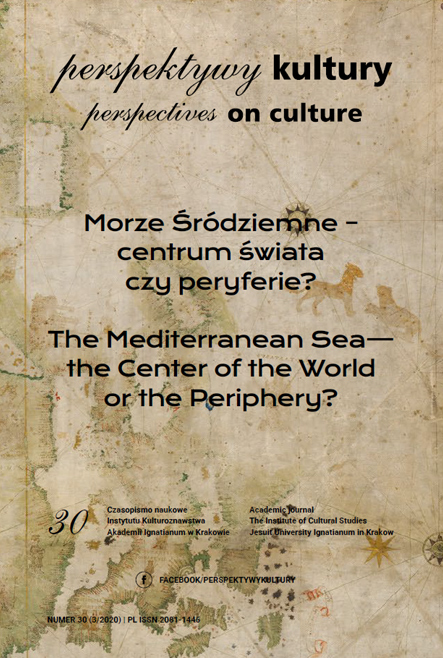Along the Routes of the Ecumene: The Journey of Sir George Wheler to the Levant (1675–1676)
Abstrakt
The article presents the French edition—printed in The Hague in 1723— of a significant example of travel literature from the end of the 17th century: A Journey into Greece (1682) by Sir George Wheler (1651–1724). The book made a profound mark on the studies of archeology, epigraphy, and the numismatics of the Balkans, Greece, and the Byzantine world. The article illustrates the significant data collected by the English traveler, botanist, scholar of classical antiquity, and clergyman, relating to the cultural and confessional mosaic in the space of southeastern Europe. His descriptions should be interpreted as a representative portrait of the remains of the ancient Euro‑Mediterranean ecumene. The traveler-churchman’s spirit of observation and sensitivity made Wheler a model author in the scholarly travel literature of the 17th century.
Bibliografia
Constantine, D. (2011). In the footsteps of the gods: Travellers to Greece and the quest for the Hellenic ideal. London–New York: Tauris Parke.
Étienne, R., & Mossière, J.-C. (Eds.). (1993). Jacob Spon. Un humaniste lyon¬nais du XVIIe siècle. Paris: Boccard.
Foucault, M. (1971). Che cos’è un autore? In C. Milanese, Scritti letterari (pp. 1–21). Milan: Feltrinelli.
Mitsi, E. (2006). Travel, memory, and authorship: George Wheler’s “A Jour¬ney into Greece (1682)”. Restoration: Studies in English Literary Culture, 1660–1700, 30(1), 15–29.
Otter, W. (1827). Life and Remains of Edward Daniel Clarke. New York: Harper.
Ramsey, R.W. (1942). Sir George Wheler and his travels in Greece, 1651–1724. In R.W. Chapman (Ed.), Essays by divers hands: Transactions of the Royal Society of Literature (Vol. XIX, pp. 1–39). London: Humphrey Milford, Oxford UP.
Raphael, S. (1993). The Reverend Sir George Wheler, 1650–1724. In R. Étienne, J.-C. Mossière (Eds.): Jacob Spon. Un humaniste lyonnais du XVIIe siècle (= Publications de la bibliothèque Salomon-Reinach. Vol. 6) (pp. 257–267) Paris: Boccard.
Stoneman, R. (2010). Lands of lost gods: The search for Classical Greece. Lon¬don–New York: Tauris Parke.
Urban, S. (1833). The Gentleman’s Magazine and Historical Chronicle, from July to December 1833 (Vol. CIII, part II, pp. 105–112). London: J.B. Nichols and Sons.
Wheler, G. (1723). Voyage de Dalmatie, de Grece et du Levant, V. 1. The Hague: Chez Rutgert Alberts.
Wilson, N.G. (2004). Wheler, Sir George (1651–1724). In (2008 online ed.Oxford Dictionary of National Biography ). Oxford: Oxford University Press.
Wroth, W. W. (1899). Wheler, George. In S. Lee (Ed.), Dictionary of National Biography (pp. 445–446). London: Smith, Elder & Co.
Copyright (c) 2020 Akademia Ignatianum w Krakowie

Utwór dostępny jest na licencji Creative Commons Uznanie autorstwa – Bez utworów zależnych 4.0 Międzynarodowe.
Autor, zgłaszając swój artykuł, wyraża zgodę na korzystanie przez Wydawnictwo Uniwersystet Ignatianum z utworu na następujących polach eksploatacji:
- utrwalania utworu w formie papierowej, a także na nośniku cyfrowym lub magnetycznym;
- zwielokrotnienia utworu dowolną techniką, bez ograniczenia ilości wydań i liczby egzemplarzy;
- rozpowszechniania utworu i jego zwielokrotnionych egzemplarzy na jakimkolwiek nośniku, w tym wprowadzenia do obrotu, sprzedaży, użyczenia, najmu;
- wprowadzenia utworu do pamięci komputera;
- rozpowszechniania utworu w sieciach informatycznych, w tym w sieci Internet;
- publicznego wykonania, wystawienia, wyświetlenia, odtworzenia oraz nadawania i reemitowania, a także publicznego udostępniania utworu w taki sposób, aby każdy mógł mieć do niego dostęp w miejscu i czasie przez siebie wybranym.
Wydawca zobowiązuje się szanować osobiste prawa autorskie do utworu.





